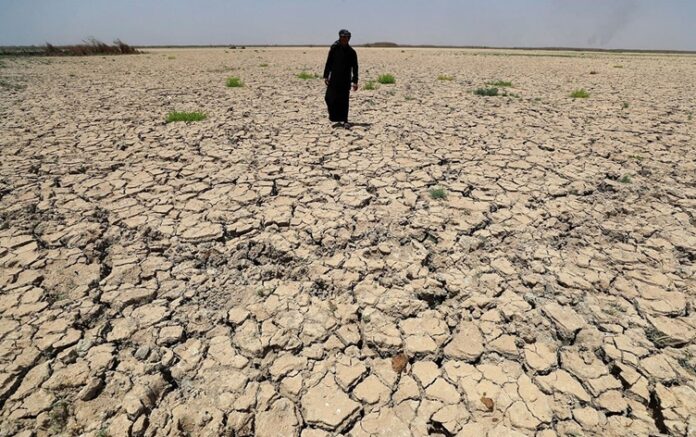BAGHDAD – Iraq has unveiled an ambitious plan to construct ten new dams in its arid desert regions in a bid to bolster the country’s rapidly depleting water reserves and improve long-term water security.
The announcement comes amid growing concerns over the impact of climate change and upstream dam construction in neighboring countries, particularly Turkiye, which have drastically reduced the flow of the Tigris and Euphrates rivers—lifelines for millions of Iraqis.
Speaking on Monday, Iraq’s Minister of Water Resources, Awn Dhiab Abdullah, warned that the country was experiencing the worst water crisis in its modern history. “The shortage the country is experiencing is the most dangerous in its history, forcing 12 provinces to rely exclusively on groundwater to cover their various needs,” Abdullah said.
The planned dams are part of an urgent national strategy to harvest and store rainwater and seasonal floodwater across Iraq’s vast deserts. According to Abdullah, these projects will be crucial in building strategic reserves in provinces that lack traditional surface-water sources.
More than half of Iraq’s desert regions currently depend on groundwater—a resource that is becoming increasingly stressed due to over-extraction and lack of replenishment. Abdullah emphasized the importance of diversifying Iraq’s water sources through water-harvesting projects that reduce dependence on the shrinking river systems.
The situation is particularly dire in Dhi Qar, a province in southern Iraq, which has faced one of the worst droughts in living memory. The extreme conditions have forced nearly 10,000 families in rural areas to abandon their homes and relocate to urban centers, further straining local infrastructure and resources.
Iraq’s water crisis has been building for years, worsened by reduced rainfall, inefficient irrigation practices, and regional disputes over transboundary water management. The new dam initiative signals a shift toward more sustainable water infrastructure, though it will take time and significant investment to implement effectively.
As Iraq braces for more intense heatwaves and unpredictable rainfall patterns in the coming years, the government hopes these dams will provide a vital buffer against future droughts and help stabilize communities vulnerable to climate-induced displacement.
With water scarcity threatening agriculture, public health, and national stability, officials say the dam-building plan is not just a development project—it is a critical lifeline for Iraq’s future.

